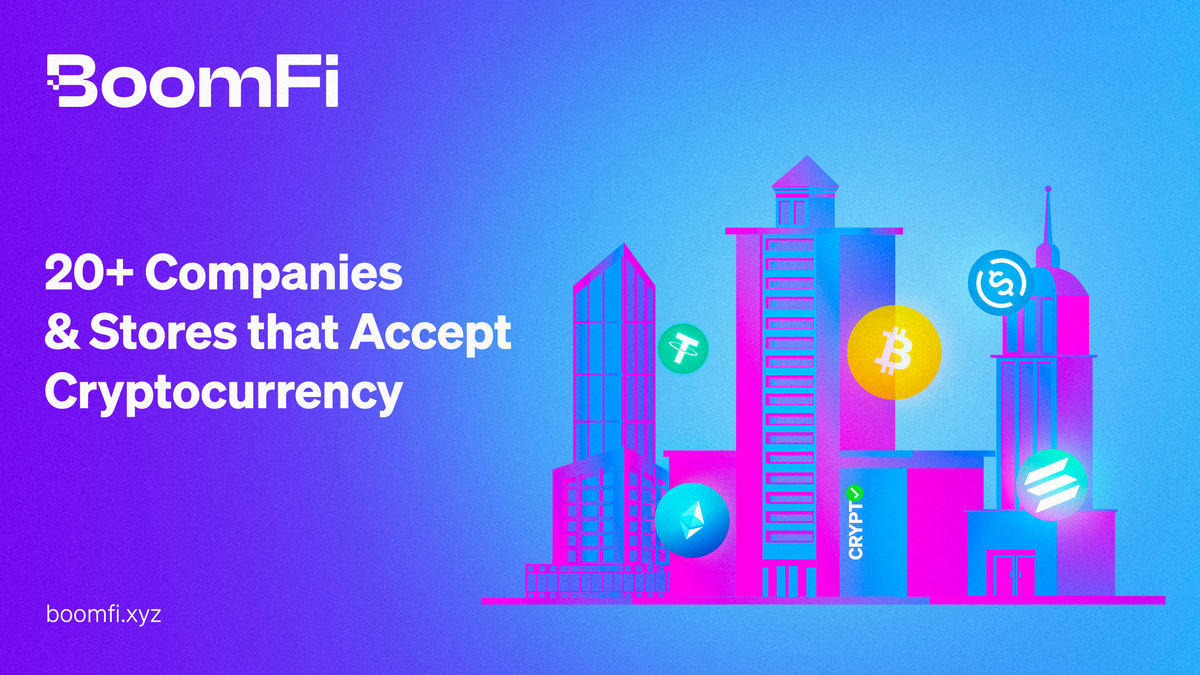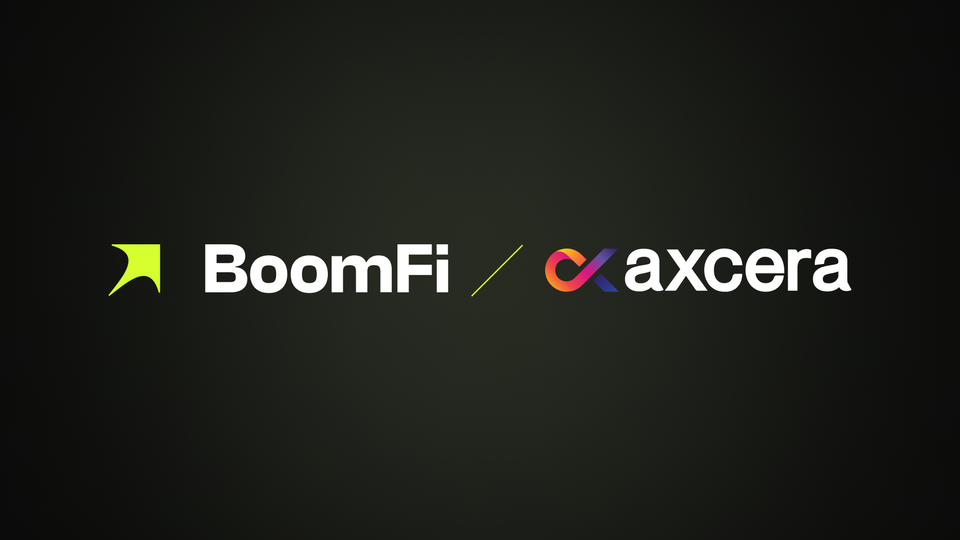20+ companies & stores that accept cryptocurrency: A Comprehensive List
Discover the top companies that accept crypto payments and learn about the benefits of using cryptocurrency for your business transactions

What is cryptocurrency?
Cryptocurrency, a groundbreaking innovation in the realm of finance and technology, is a form of digital or virtual currency secured by cryptography. Unlike traditional currencies issued by governments and central banks, cryptocurrencies operate on decentralized networks based on blockchain technology. A blockchain is a distributed ledger that records all transactions across a network of computers, ensuring transparency and immutability. Bitcoin, introduced in 2009 by an anonymous entity known as Satoshi Nakamoto, marked the advent of cryptocurrencies and remains the most well-known and widely used. However, the crypto landscape has expanded exponentially, with thousands of alternative cryptocurrencies, often referred to as altcoins, offering diverse features and use cases. The decentralized nature of cryptocurrencies eliminates the need for intermediaries, such as banks, in financial transactions, providing users with greater control, privacy, and security. The rising popularity of cryptocurrencies signifies a transformative shift in the way we perceive and engage in traditional financial transactions.
What are the benefits of using cryptocurrency as a payment?
Cryptocurrencies stand at the forefront of a financial revolution, reshaping the dynamics of transactions for both businesses and customers. This revolutionary digital currency offers a multitude of advantages, revolutionizing the way we perceive and engage in financial exchanges.
For Businesses:
- Reduced Transaction Costs: Embracing cryptocurrency transactions translates to significant cost savings for businesses, as these transactions typically incur lower fees compared to conventional payment methods like credit cards.
- Global Accessibility: Cryptocurrencies break down geographical barriers, offering businesses an avenue for borderless transactions. This eradicates the challenges associated with international payments, including currency conversion fees and prolonged processing times.
- Fortified Security: The decentralized nature of blockchain technology, the backbone of cryptocurrencies, ensures a high level of security. This robust security infrastructure shields businesses from potential fraudulent activities and the headaches of dealing with chargebacks.
- Financial Inclusion: Cryptocurrencies pave the way for businesses to extend their reach to customers in regions with limited access to traditional banking services. This fosters financial inclusion on a global scale, empowering individuals who were previously excluded from the economic mainstream.
- Swift Transactions: Cryptocurrency transactions are known for their swiftness. The expedited processing times contribute to faster payment settlements, streamlining operational processes and enhancing overall business efficiency.For Customers:
- Security and Privacy: Cryptocurrencies offer users an elevated level of security and privacy. Transactions are pseudonymous, significantly reducing the risk of identity theft and unauthorized access to sensitive information.
- Financial Inclusion: Cryptocurrencies empower individuals without access to traditional banking services, providing them with the tools to participate in the global economy and engage in online transactions.
- Ownership and Control: Users enjoy complete ownership and control over their cryptocurrency holdings. This eliminates dependence on third-party intermediaries, providing users with unprecedented financial autonomy.
- Global Accessibility: Cryptocurrencies enable individuals to make transactions globally without the need for currency conversions or the complexities of international banking, fostering seamless global financial interactions.
- Reduced Fees: The cost-efficiency of cryptocurrency transactions becomes a significant boon for users, offering lower fees compared to traditional payment methods. This results in substantial savings for users in transaction and currency exchange costs.
What are the benefits of using cryptocurrency as a payment?
Despite the numerous advantages that cryptocurrencies bring to the table, it is essential to acknowledge the existing drawbacks that may pose challenges to both businesses and users.
Volatility: Cryptocurrencies are notoriously known for their price volatility. The value of these digital assets can experience significant fluctuations in a short period, leading to uncertainties for users and businesses alike.
Limited Acceptance: While the adoption of cryptocurrencies is steadily increasing, there is still a considerable gap in the number of businesses and merchants accepting them as a form of payment. This limited acceptance hinders the widespread use of cryptocurrencies for day-to-day transactions.
Regulatory Uncertainty: The regulatory landscape surrounding cryptocurrencies is continually evolving, leading to a level of uncertainty for users and businesses. Shifting regulations can impact the legality and acceptance of cryptocurrencies in different regions, creating challenges for compliance.
Security Concerns: While blockchain technology is inherently secure, the infrastructure supporting cryptocurrency transactions is not entirely immune to cyber threats. Hacks and security breaches on cryptocurrency exchanges and wallets remain a concern, emphasizing the need for robust security measures.
Irreversible Transactions: Cryptocurrency transactions are typically irreversible, meaning that once initiated, they cannot be undone. While this feature prevents fraudulent chargebacks, it also leaves users with limited recourse in the case of accidental or erroneous transactions.
Lack of Consumer Understanding: Many potential users still lack a comprehensive understanding of how cryptocurrencies work. This lack of awareness and understanding can act as a barrier to adoption, preventing broader acceptance among the general population.
Navigating these drawbacks requires a balanced approach, with ongoing efforts to address these challenges and enhance the overall reliability and acceptance of cryptocurrencies in the global financial landscape.
Companies accept cryptocurrency as payment
In the rapidly evolving landscape of digital finance, an increasing number of forward-thinking companies are embracing the future by accepting cryptocurrency as a form of payment. As the popularity of digital assets like Bitcoin and other cryptocurrencies continues to surge, these pioneering businesses recognize the importance of staying ahead. From tech giants to retail leaders, discover a diverse range of companies that have seamlessly integrated cryptocurrency into their payment options. Join us on a journey through the innovative realms where crypto transactions are not just a possibility but a reality, reshaping the way we engage in commerce.
What retailers accept cryptocurrency?
- Microsoft: The tech giant accepts Bitcoin for transactions in its online Xbox Store.
- Overstock: A leader in online shopping, Overstock not only accepts Bitcoin but also various other cryptocurrencies.
- Home Depot: The largest hardware store chain in the U.S., Home Depot, allows customers to purchase materials using Bitcoin.
- Namecheap: A popular domain registrar, Namecheap, is known for accepting Bitcoin for domain purchases.
- Starbucks: Partnering with Bakkt, Starbucks enables Bitcoin payments through the Bakkt app for a futuristic coffee-buying experience.
- Whole Foods: Through the Winklevoss Flexa spending app 'Spedn', Whole Foods allows customers to buy groceries with Bitcoin, Litecoin, or the Gemini dollar.
- Tesla: Although temporarily paused, Tesla had announced accepting Bitcoin for its electric vehicles and expressed the intention to resume once Bitcoin mining is more sustainable.These companies represent a diverse range of industries, showcasing the growing acceptance and integration of cryptocurrencies in the retail sector.
What online stores accept cryptocurrency?
As the popularity of cryptocurrencies continues to grow, more and more online stores are starting to accept this form of digital payment. While the number of stores accepting cryptocurrency is still relatively small compared to traditional payment methods, there are several notable online retailers that have embraced this innovative payment option.
- Gyft: Gyft is a platform that allows users to buy, send, and redeem gift cards using Bitcoin, providing access to a variety of retailers.
- Travala: An online travel agency, Travala accepts various cryptocurrencies for booking hotels and accommodations, expanding options for travelers.
- Etsy: Some sellers on Etsy, a popular online marketplace for handmade and unique items, accept Bitcoin as a payment option.
- AirBaltic: This Latvian airline accepts Bitcoin payments for booking flights, catering to the crypto-savvy travelers.
- Reeds Jewelers: A jewelry retailer, Reeds Jewelers accepts Bitcoin for purchases, providing a unique option for those looking to buy jewelry with cryptocurrency.
- Benz and Beamer: If you're in the market for luxury cars, Benz and Beamer, a car dealership, accepts Bitcoin payments for high-end vehicles.
- Bitcoinshirt.co: An online store dedicated to cryptocurrency enthusiasts, Bitcoinshirt.co allows users to buy apparel and accessories using Bitcoin.
- Alza: Alza, an online electronics retailer, accepts Bitcoin for a wide range of electronic products, offering tech enthusiasts more options for using cryptocurrencies.
- Crypto Pet: For pet lovers, Crypto Pet allows users to purchase pet supplies and accessories using Bitcoin, catering to the needs of cryptocurrency enthusiasts with pets. These additional options showcase the diverse range of products and services available for purchase using cryptocurrencies online.
What are the restaurants that accept cryptocurrency?
As the adoption of cryptocurrencies grows, several restaurants around the world have embraced the trend and started accepting crypto payments. Here are some notable restaurants where you can enjoy a meal and pay with cryptocurrencies:
- Subway: Subway, the global sandwich chain, has been an early adopter of Bitcoin payments in select locations. While not all franchises accept crypto, some do, allowing customers to enjoy their favorite sandwiches with digital currency.
- Burger King: Burger King has embraced cryptocurrency payments in certain locations. In 2019, Burger King Germany and Venezuela started accepting Bitcoin through their website for online orders, providing customers with an alternative payment option.
- Quiznos: Quiznos, known for its toasted subs, has joined the crypto bandwagon. Through a partnership with Bakkt, Quiznos allows customers to pay for their meals with Bitcoin at select locations in Denver, Colorado.
- Just Eat: If you're in France, Just Eat, a popular food delivery service, accepts Bitcoin payments for your favorite meals. This provides a convenient option for those who prefer to order food online and pay with cryptocurrency.While the list of restaurants accepting crypto is continually expanding, it's essential to check with individual locations or chains to confirm their current payment methods and cryptocurrency acceptance policies. Cryptocurrency adoption in the food industry is an exciting development, offering more flexibility in payment choices for customers worldwide.
Things to keep in mind
When delving into the realm of cryptocurrency payments, there are crucial things to keep in mind to ensure a seamless and secure experience. First and foremost, familiarize yourself with the specific cryptocurrencies accepted by each company, whether it's Bitcoin, Ethereum, or other digital assets. Verify the payment processes and any potential transaction fees associated with crypto payments. Additionally, stay informed about the companies' commitment to security measures and compliance with regulatory standards.
Conclusion
In conclusion, the landscape of commerce is undergoing a transformative shift as an increasing number of companies across various industries recognize and embrace the potential of cryptocurrency payments. From tech titans like Microsoft to retail giants like Home Depot, the integration of digital currencies is reshaping the way we engage in financial transactions. The benefits, including reduced transaction costs, global accessibility, and fortified security, make cryptocurrencies an appealing option for businesses and customers alike. However, challenges such as volatility, limited acceptance, and regulatory uncertainties underscore the need for a balanced approach. As more retailers, online stores, and even restaurants join the crypto revolution, users must stay informed about the specific cryptocurrencies accepted, payment processes, and security measures in place. Cryptocurrency's journey from an experimental concept to a widely accepted form of payment underscores its potential to redefine the future of finance. The evolving landscape invites users to explore the endless possibilities and considerations that come with the exciting era of cryptocurrency adoption.

 Blog/20+ companies & stores that accept cryptocurrency: A Comprehensive List
Blog/20+ companies & stores that accept cryptocurrency: A Comprehensive List





